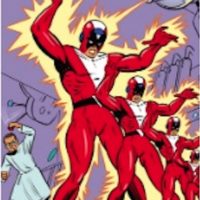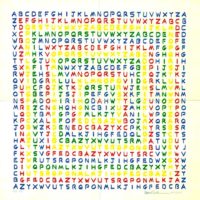The New York Review of Books will present a discussion about the ways contemporary journalism has addressed moments of political and social crisis. The program, Journalism in a Time of Crisis, is scheduled for Feb. 24 at 7:30 p.m., featuring Justine van der Leun, Howard French, Elizabeth Bruenig, Mark Danner, and Darryl Pinckney.
Riding the Zoom Wagon
Poetry Comes in Different Ways from Different Sources
David Erdos, a British poet most prolific, shows us one of them.
Let’s Talk About Literary Exposure
Some would call it visibility. If you’re talking books, how about millions upon millions of Youtube views for a reading from Supervert’s ‘Necrophilia Variations.’ A dozen years ago when that video had two million views, I called it “viral reading.” Three years later, on Dec. 30, 2015, the video had 18.6 million views. Today it has some 28 million views. So what has this meant for selling the book?
Jim Haynes, RIP
Brad Spurgeon memorializes him: “End of an Era, but not of a Philosophy of Life.” I never met Jim. But he was extraordinarily welcoming when we corresponded by email about the strange case of Orwell’s typewriter.
Remember These Headlines
These headline writers got it right.
GC CUNY at the Center of the Conversation
Peter Baker & Susan Glasser on James A. Baker III, with Kai Bird
“For a quarter-century, from the end of Watergate to the aftermath of the Cold War, no Republican won the presidency without the help of James A. Baker III or ran the White House without his advice. Now two major political journalists, Peter Baker (of The New York Times) and Susan Glasser (of The New Yorker) have written ‘The Man Who Ran Washington,’ a definitive, page-turning biography of the power broker whose impact was unmatched when Washington ran the world and who influenced America’s destiny for generations. The authors join in a discussion with Kai Bird, executive director of the Leon Levy Center for Biography.”
Heathcote Williams: ‘Cobalt Blues’
I was reminded of ‘Cobalt Blues’ this morning by Louise Erdrich’s op-ed “Not Just Another Pipeline” about “a tar sands climate bomb” in Minnesota now under construction and racing “to lock in pipeline infrastructure” before it can be stopped.
‘Burroughs and the Dharma’
William S. Burroughs was not a Buddhist: he never sought or found a “Teacher,” he never took Refuge, and he never undertook any Bodhisattva vows nor—for that matter—did he ever declare himself a follower of any one faith or practice.. He did not consider himself a Buddhist. But he did have an awareness of the essentials of Buddhism, and in his own way, he was affected by bodhidharma.
GC CUNY at the Center of the Conversation
Biden Chronicler Evan Osnos on the 2020 Presidential Election
In his new book, “Joe Biden: The Life, the Run, and What Matters Now,” Evan Osnos draws on nearly a decade of reporting for The New Yorker. His portrait of Biden and what his election means for the nation. is based on lengthy interviews with Biden, as well as conversations with President Barack Obama, the Biden family, his advisers, rivals, and opponents.
The Clown King’s Latest Confidence Game
An email arrived just in tiime for Thanksgiving, asking for contributions to help overturn the election even after he’s been declared—signed, sealed, and certified—the absolute loser. Meanwhile construction has begun on renovations to his post-presidential living quarters in Florida. Does he believe his supporters are brain-dead suckers? Of course.
REDUX: The Shithole and the Shithouse
Originally posted Jan. 17, 2018. By now many, many millions of people have seen the rebranded Trump International Hotel in Washington, D.C. Or if they haven’t, at least that many have googled it. If you’re the one person who hasn’t seen it, here it is. And here, not incidentally, is Trump’s Shithouse in Washington D.C., also known as The White House.
His Birthday Was 79 Years Ago Today
Heathcote Williams was an unstoppable force. Even in death he is unstoppable. His writings, his activism, and his personal example continue to inspire others. At heart, Williams was a revolutionary. The historian Peter Whitfield placed his work in a “great tradition of visionary dissent” stretching from William Blake and John Ruskin to DH Lawrence and David Jones. I had the privilege of recording Williams’s final vinyl LP-cum-CD, “American Porn,” at his home in Oxford several years before he died. The poems he read — “Mr. President,” “The United States of Porn,” “Forbidden Fruit, or The Cybernetic Apple Core,” and “Snuff Films at the White House” — were in their uncompromising nakedness CT scans of history.
Kosti Does His Self-Publishing T-h-a-a-a-n-g . . .
Richard Kostelanetz shows us his M-A-N-Y books from Archae Editions. And he is stacked.
GC CUNY at the Center of the Conversation
The Science of Superheroes
FREE ONLINE EVENT: “The pop-culture universe of superheroes is filled with extraordinary humans and abilities. Captain America, the Hulk, and Black Panther seem to lie firmly in the realm of fantasy, but the technology behind them might not be as farfetched as we think. In his book ‘The Science of Marvel,’ Sebastian Alvarado shows that, using quantum physics, evolutionary biology, and mechanical engineering, we can find real-world parallels to superpowers such as ‘spidey sense’ and Thor’s lightning. He speaks with Shane Campbell-Staton, host of the podcast ‘The Biology of Superheroes,’ about where the science meets the fiction.” — GC Presents
When Emmett Williams Squared the Alphabet . . .
In 1956, his color scheme was as bright as day. In the plague year of 2020 a color inversion is like the night.
GC CUNY at the Center of the Conversation
CHANGE: How Artists Lead the Way
Wednesday, Oct. 21, 7:30 p.m. A FREE ONE EVENT Featuring Vijay Gupta, violinist, founder of Street Symphony, a MacArthur Award-winner, and popular TED speaker; Hồng-An Trương, an artist using photography, sound, video, and performance, whose work has been shown at venues including the International Center for Photography, The Kitchen, and the Museum of Modern Art; and Hank Willis Thomas, a conceptual artist whose work has been exhibited at the International Center of Photography; Guggenheim Museum Bilbao, Spain; and Hong Kong Arts Centre; and who collaborates on the artist-run initiatives for civic engagement For Freedoms and the Wide Awakes. This cross-disciplinary panel will be moderated by Sarah Lewis, associate professor at Harvard University; a leading commentator on race, contemporary art, and culture; and a much-viewed TED speaker.
Homer’s ‘Odyssey’ Comes Alive in London Reading
‘The Odyssey’ tells of the adventures of Odysseus as he tries to get home after the Trojan War, and of his wife Penelope’s struggles to keep their island kingdom from civil war, along with his son Telemachus’ search to find his lost father. This reading brings 72 actors together to perform the epic poem in sequence. ‘The Odyssey’ was first performed by bards across the Mediterranean in the eighth century BCE. The entire reading will remain on YouTube for a week.




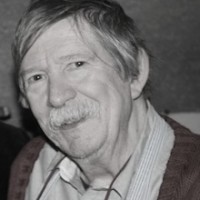
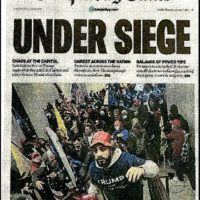


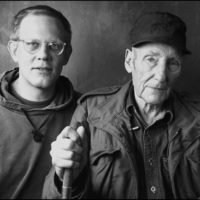
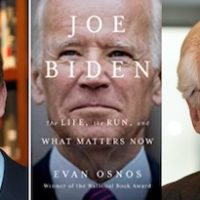
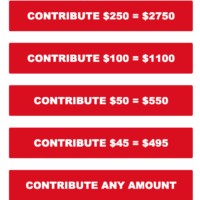

![Heathcote Williams [Photo: JH, 2013]](https://www.artsjournal.com/herman/wp/wp-content/uploads/2017/07/heathcote-williams-photo-copy-200x200.png)

